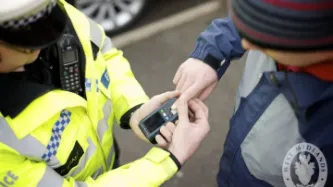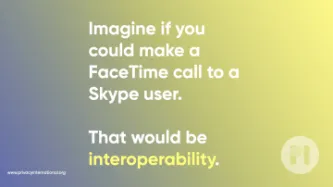Advanced Search
Content Type: Report
Privacy International partnered with the International Human Rights Clinic at Harvard Law School to guide the reader through a simple presentation of the legal arguments explored by national courts around the world who have been tasked with national courts that discuss the negative implications of identity systems, particularly on human rights, and to present their judgement.
This argumentation guide seeks to fill that gap by providing a clear, centralised source of the arguments advanced in…
Content Type: Examples
Human rights experts have accused the home secretary, Priti Patel, of ignoring legal guidance in an attempt to target child asylum seekers who cannot prove they are under 18.
A letter from the Home Office, seen by the Observer, reveals that the government is putting pressure on social workers to speed up the age assessment of unaccompanied minors, and offering to bankroll councils that face legal challenges as a result. The move comes as new evidence shows that hundreds of people were deported…
Content Type: Examples
Around 8,800 children have been deported from the United States along the Mexican border thanks to a new pandemic-related measure that functionally stripped the rights of those seeking asylum.
Donald Trump’s administration has expelled nearly 160,000 people since the emergency order proclaimed by the CDC took effect in March including roughly 7,600 adults and children who came to the US in families. The emergency order temporarily suspends citizens, regardless of their country of origin, from…
Content Type: Report
Many countries in the world have existing ID cards - of varying types and prevalence - there has been a new wave in recent years of state “digital identity” initiatives.
The systems that states put in place to identify citizens and non-citizens bring with them a great deal of risks.
This is particularly the case when they involve biometrics - the physical characteristics of a person, like fingerprints, iris scans, and facial photographs.
Activists and civil society organisations around the…
Content Type: Report
A common theme of all major pieces of national jurisprudence analyzing the rights implications of national identity system is an analysis of the systems’ impacts on the right to privacy.
The use of any data by the State including the implementation of an ID system must be done against this backdrop with respect for all fundamental human rights. The collection of data to be used in the system and the storage of data can each independently implicate privacy rights and involve overlapping and…
Content Type: Report
Identity systems frequently rely on the collection and storage of biometric data during system registration, to be compared with biometric data collected at the point of a given transaction requiring identity system verification.
While courts have arguably overstated the effectiveness and necessity of biometric data for identity verification in the past, the frequency of biometric authentication failure is frequently overlooked. These failures have the potential to have profoundly…
Content Type: Report
National identity systems naturally implicate data protection issues, given the high volume of data necessary for the systems’ functioning.
This wide range and high volume of data implicates raises the following issues:
consent as individuals should be aware and approve of their data’s collection, storage, and use if the system is to function lawfully. Despite this, identity systems often lack necessary safeguards requiring consent and the mandatory nature of systems ignores consent…
Content Type: Report
While identity systems pose grave dangers to the right to privacy, based on the particularities of the design and implementation of the ID system, they can also impact upon other fundamental rights and freedoms upheld by other international human rights instruments including the International Covenant on Civil and Political Right and the International Covenant on Economic, Social and Cultural Rights such as the right to be free from unlawful discrimination, the right to liberty, the right to…
Content Type: Report
Rather than providing a list of arguments, as is the case in the other sections of this guide, the fifth section provides a general overview describing the absence of consideration of these themes in existing jurisprudence and the reasons why these themes warrant future consideration including identity systems’ implications for the rule of law, the role of international human rights law, and considerations of gender identity.
Democracy, the Rule of Law and Access to Justice: This analysis of…
Content Type: Press release
Today, the European Court of Human Rights (ECtHR) has handed down a decision in a case brought by Privacy International and a coalition of internet and communications service providers and campaign groups including the Chaos Computer Club (Germany), GreenNet (UK), Jinbonet (Korea), May First/People Link (US), and Riseup (US) (the “coalition”).The case challenges the conduct of hacking operations abroad by one of the UK’s intelligence agencies, the Government Communications…
Content Type: News & Analysis
The Law Enforcement Data Service (LEDS) is a unified, common interface to a new mega-database currently being developed by the Home Office National Law Enforcement Data Programme (NLEDP). We believe that the development of the programme poses a threat to privacy and other rights and must be subjected to strong oversight, safeguards, and transparency measures.
As we explained in our analysis, the data in LEDS is vast, ever-increasing, worryingly mixes both evidential and intelligence material –…
Content Type: Report
Madhewoo (Appellant) v The State of Mauritius and another (Respondents) (Mauritius)
The first case in the recent line of national identity systems cases is Madhewoo v. The State of Mauritius and Anor. This case, decided by the Mauritian Supreme Court in 2015, upheld the collection of fingerprint data as part of a national identity card scheme, but rejected a centralised database for the storage of this data in the system. The Mauritian court found that privacy rights guaranteed by the…
Content Type: Guide step
What: the Referer (a misspelling of referrer) header contains the address of the previous web page from which a link to the currently requested page was followed. In more simple terms, the referer is the URL from which came a request received by a server. A good example is if you click a link on the page site.com/page to go to another-site.com/link, the HTTP Referer received by another-site.com/link will have the value site.com/page.
Why it's important: While the referer header can have begnign…
Content Type: News & Analysis
A new report by the UN Working Group on mercenaries analyses the impact of the use of private military and security services in immigration and border management on the rights of migrants, and highlights the responsibilities of private actors in human rights abuses as well as lack of oversight and, ultimately, of accountability of the system.
Governments worldwide have prioritised an approach to immigration that criminalises the act of migration and focuses on security.
Today, borders are not…
Content Type: Video
Find out more here: https://privacyinternational.org/long-read/3669/documentation-data-exploitation-sexual-and-reproductive-rights
You can listen and subscribe to the podcast where ever you normally find your podcasts:
Spotify
Apple podcasts
Google podcasts
Castbox
Overcast
Pocket Casts
Peertube
Youtube
Stitcher
And more...
Content Type: News & Analysis
Samsung has announced that the company will commit to providing major software updates for three generations of the Android operating system, but only for its flagship models: the S10, S20, Note 10 and Note 20.
From our reading of the available information, this means that these models will be getting support, including the latest operating system, features and security updates, for three years (as new Android operating systems are released every year).
While this is welcome news, it only…
Content Type: Examples
The Australian government reported soon after releasing its CovidSafe contact tracing app that the app doesn’t work properly on iPhones because it doesn’t use Apple’s Exposure Notification framework and the Bluetooth functions deteriorate if the app isn’t kept running in the foreground. The government will update the app to use Apple’s framework. The app will store data on Amazon Web Services servers within Australia, although critics have expressed concern that the data could be handed over to…
Content Type: Examples
Colombia will adopt the Apple-Google contact tracing platform after finding it necessary to remove the contact tracing functions from CoronApp, the official Colombian coronavirus information app because they didn’t work. CoronApp was downloaded by 4.3 million people, and includes features to report symptoms and locate cases on a map. The contact tracing features, which were supposed to be able to overcome the limitations of the iPhone’s Bluetooth implementation, were provided by the Portuguese…
Content Type: Examples
Many of India’s informal workforce of 450 million people - 90% of the total workforce - were abruptly closed out of their places of employment when prime minister Narendra Modi abruptly ordered a lockdown in April. Left without pay, unable to stay in their living conditions, and with only limited train service available, many workers began walking back to their home states. Along the way, police are punishing them for failing to obey the quarantine and social distancing rules; others are dying…
Content Type: Examples
After governments in many parts of the world began mandating wearing masks when out in public, researchers in China and the US published datasets of images of masked faces scraped from social media sites to use as training data for AI facial recognition models. Researchers from the startup Workaround, who published the COVID19 Mask image Dataset to Github in April 2020 claimed the images were not private because they were posted on Instagram and therefore permission from the posters was not…
Content Type: Examples
As part of its pandemic-related emergency measures, in April the Scottish government extended the deadline for public bodies to respond to freedom of information requests to 40 days. A month later, it was forced to withdraw the changes after opposition parties on the Scottish parliament's COVID-19 committee voted them down. FoI deadlines will revert to 20 working days, as previously. MSPs also passed an amendment requiring the Scottish government to report to parliament every two months on its…
Content Type: Examples
The outsourcing company Serco, which the UK government has contracted to perform contact tracing, accidentally shared the email addresses of almost 300 of the contact tracers it hired when a staff member sent an introductory email and used CC rather than blind CC. Serco does not intend to refer itself to the Information Commissioner's office.
Writer: Ross Hawkins
Publication: BBC
Content Type: Explainer
The lead author of this piece is Elettra Bietti, a doctoral student at Harvard Law School and volunteer for Privacy International
Network effects
Social media companies and other digital business models are driven by so-called network effects. A network effect (also called a network externality) is a service’s propensity to improve functionally as the number of people using it and the amount of data collected through it increases. For example, as the number of Facebook users increases, Facebook…
Content Type: Examples
Soon after the UK began reopening pubs with the requirement that staff retain customer details in case they are needed later for contact tracing, a woman reported on Twitter that the next day the bartender messaged her on Facebook. The story was picked up by Refinery29 and the Independent, but taken down at her request. On Twitter, numerous women responded to highlight similar experiences.
https://twitter.com/roselyddon/status/1281885086347075588
https://twitter.com/katebevan/status/…
Content Type: Examples
Brazil’s Federal Supreme Court has struck down a government order forcing telecommunications companies to provide access to the user information relating to the country’s 200 million citizens to enable the government to conduct phone interviews to determine the economic response to the COVID-19 pandemic. In the process, the ruling established that data protection is a fundamental right. However, privacy advocates warned that the lack of established data protection law in the country opened the…
Content Type: Examples
More than 6 million Australians downloaded the government’s COVIDSafe contact tracing app after being told it was necessary to help health officials track future coronavirus outbreaks. In late May, a software developer found a flaw in the app that would allow someone with a relatively simple Bluetooth device to crash the app running on nearby phones so they wouldn’t attempt to pair with other nearby phones and no data would be available to health officials if the phone’s owner becomes infected…

















